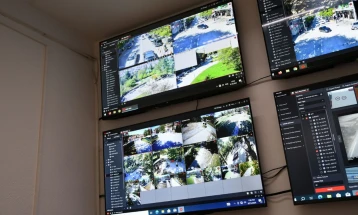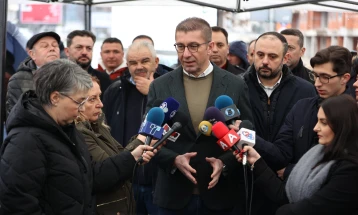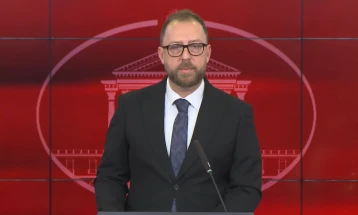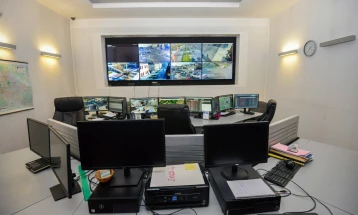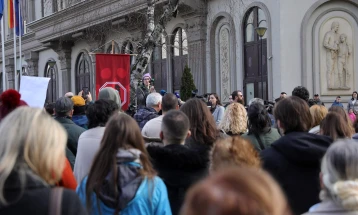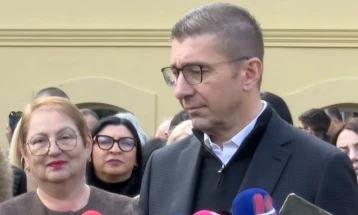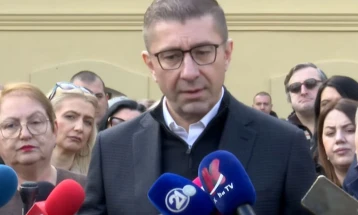Angelovska-Bezhoska: Corona crisis shows banking sector is resilient to shocks
- Post By Nevenka Nikolik
- 12:44, 7 May, 2022
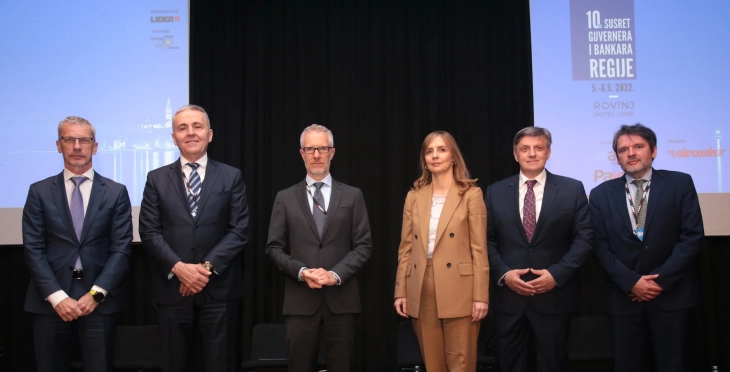
Skopje, 7 May 2022 (MIA) – The new threats brought about by the corona crisis have shown that the banking sector in the region and in the country is resilient to shocks and has the capacity to respond to challenges that may arise from the Russia-Ukraine conflict. To protect economies and financial systems, it’s important that monetary policy gradually returns to normal, said National Bank Governor Anita Angelovska-Bezhoska, who is participating in the annual meeting of regional central bank governors taking place in Rovinj, Croatia.
Speaking about the banking sector in the country, Governor Angelovska-Bezhoska pointed out that banks have maintained the credit cycle amid the complex situation of the pandemic, while lending has further strengthened since the beginning of the year.
“Lending increased by 10% in March, with the growth of corporate sector lending exceeding the growth in households. Non-performing loans are still low at 3.1% in March, which is among the lowest in the Western Balkans and beyond, and also better compared to pre-pandemic levels. Banks have sufficient capital, which is an important advantage in dealing with the risks. The country’s financial exposure to Russia and Ukraine is quite low and we don’t have the presence of Russian and Ukrainian banks. Regular stress tests also show that the banking system as a whole is resilient to shocks,” said Angelovska-Bezhoska.
She added that the challenges faced by the banking sector in the country have mainly come from speculation about the stability of the exchange rate, which was quite pronounced since the beginning of the Russia-Ukraine crisis. However, thanks to the traditionally high levels of liquidity of banks at home, as well as the National Bank’s decisive response, the situation got stable quickly.
Angelovska-Bezhoska stressed that although expectations for economic growth both in Europe and in the region have been lowered, projections for this year are still positive.
Head of the European Stability Mechanism Klaus Regling, as well as Croatian National Bank Governor Boris Vujčić, Slovenia's central bank Governor Boštjan Vasle, Bosnia and Herzegovina's Senad Softić, and Montenegro’s Radoje Žugić also addressed the event.
The annual meeting focuses on current topics and policies, and brings together central bank governors, monetary policy experts, regional commercial bank presidents and board members, as well as representatives of international financial institutions. This year’s meeting focused on economic recovery in terms of the conflict in Ukraine and the sanctions against Russia, the uncertainty and the financial sector, inflation and monetary policy.
